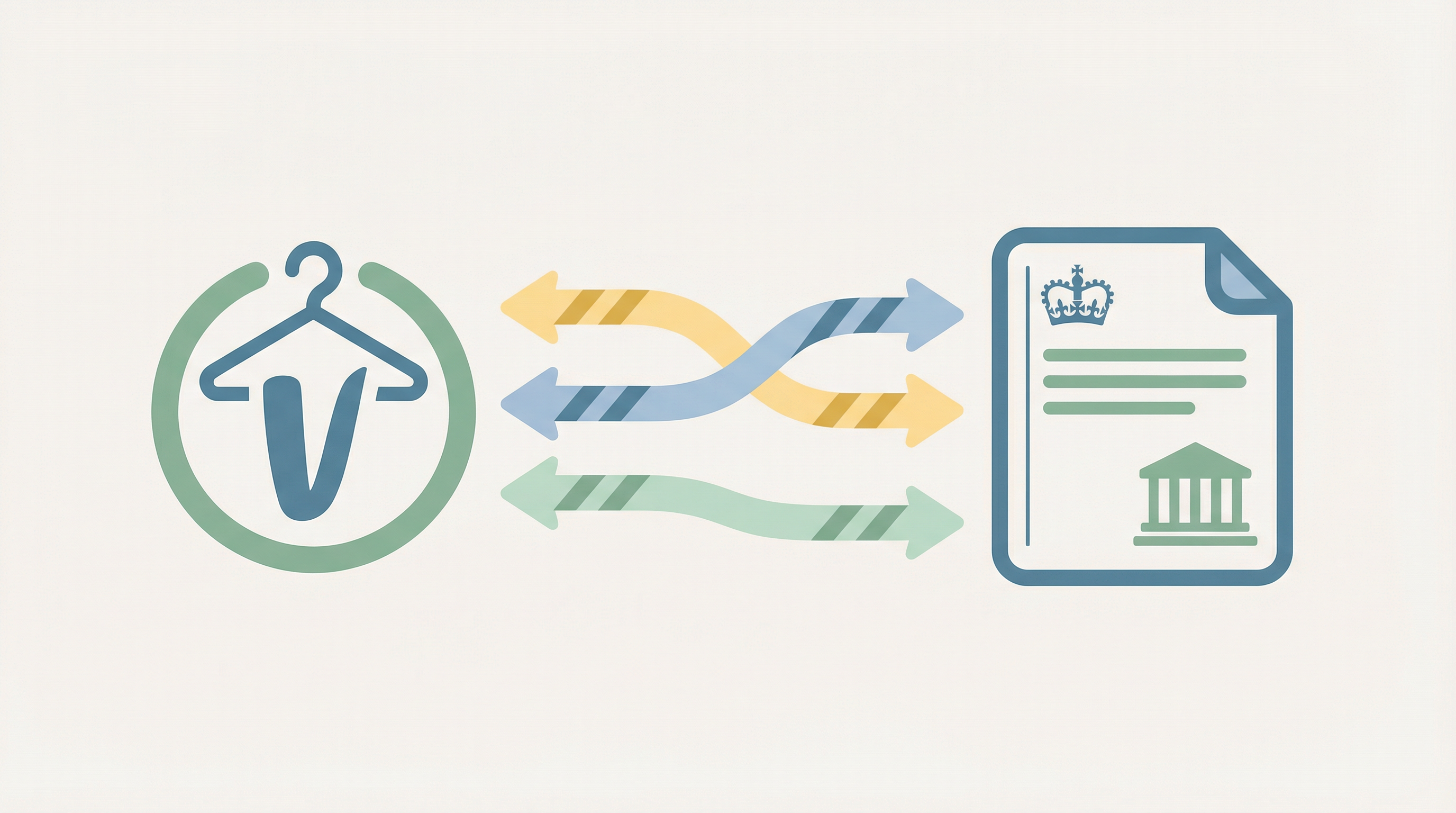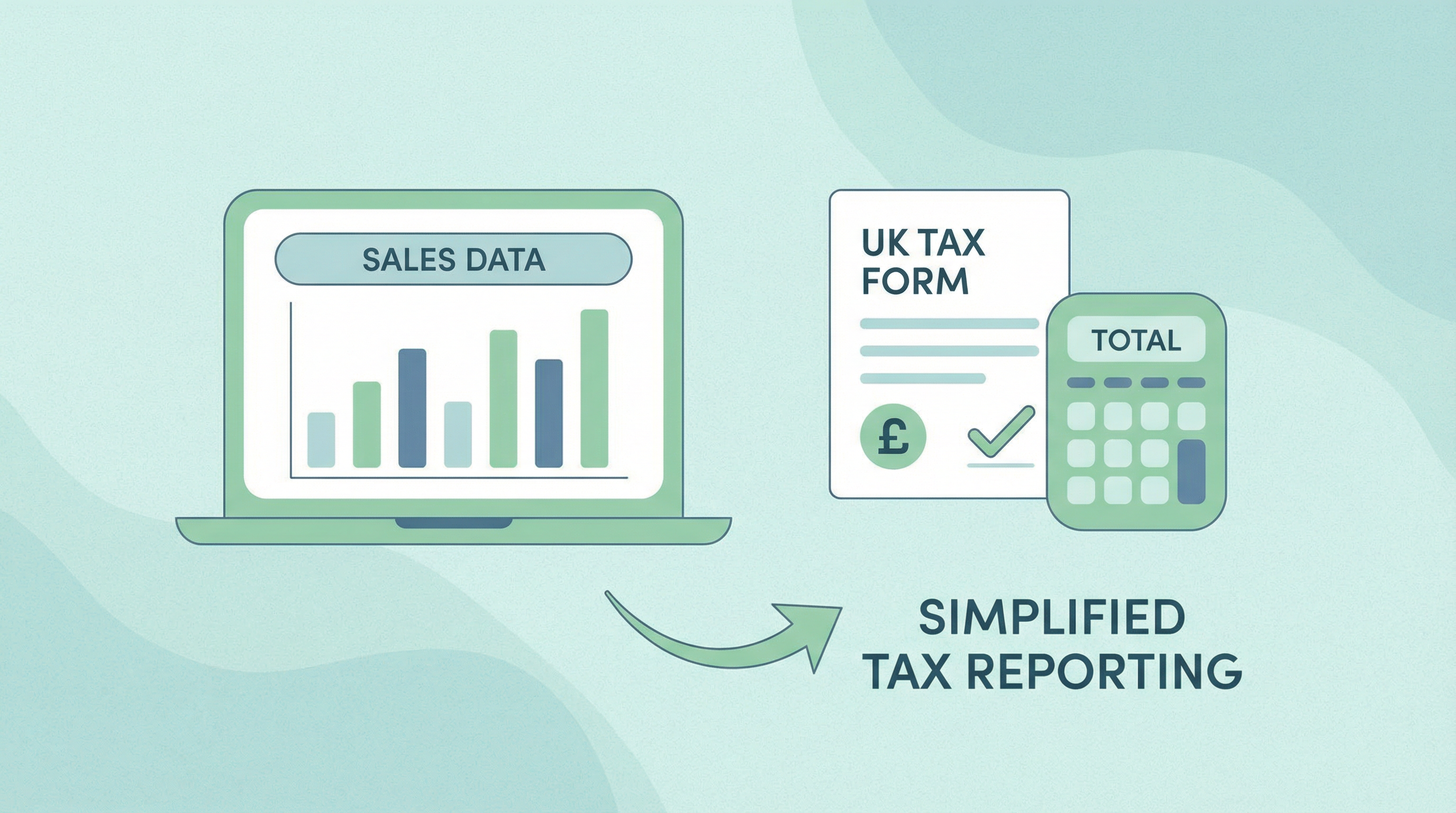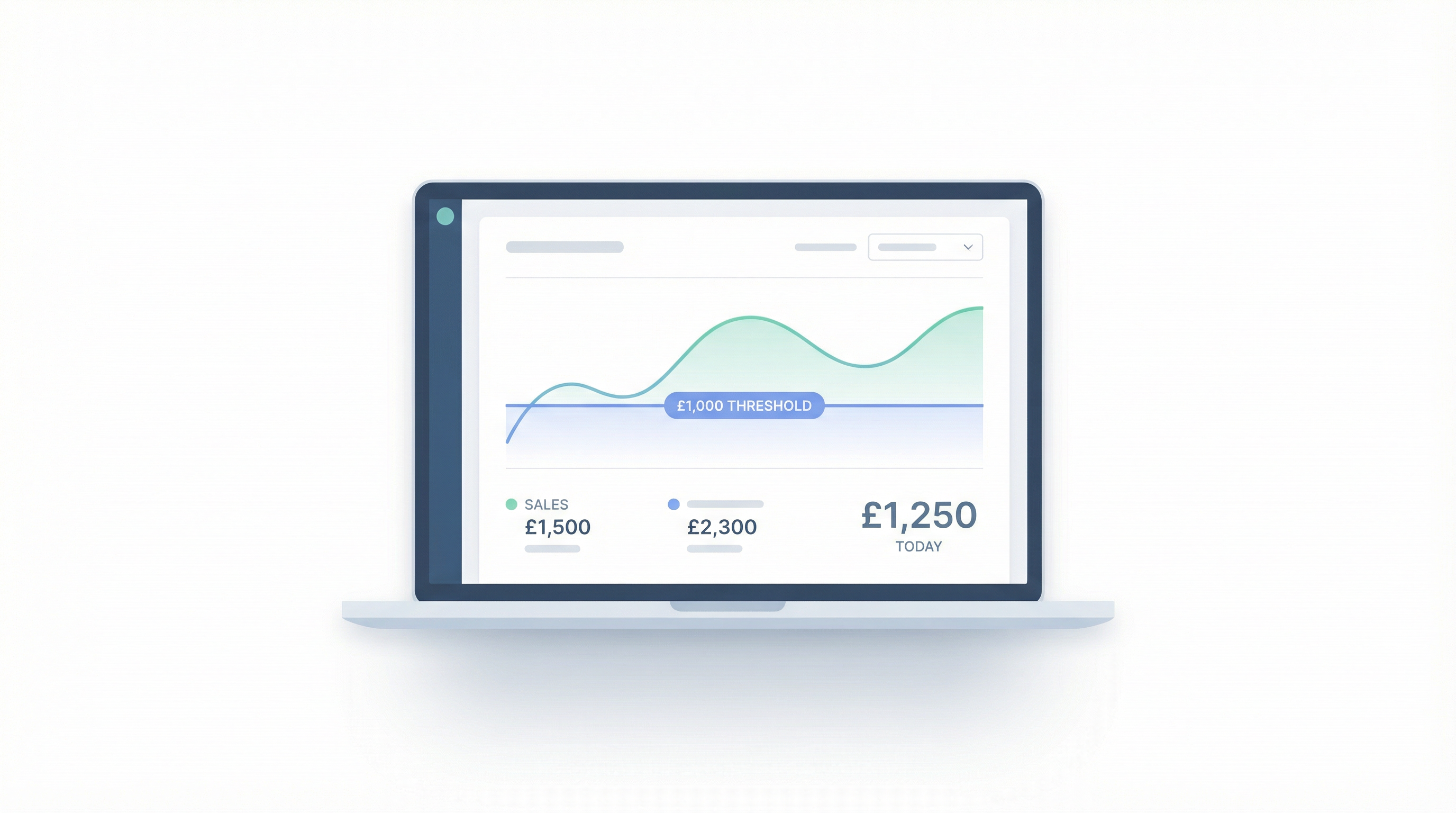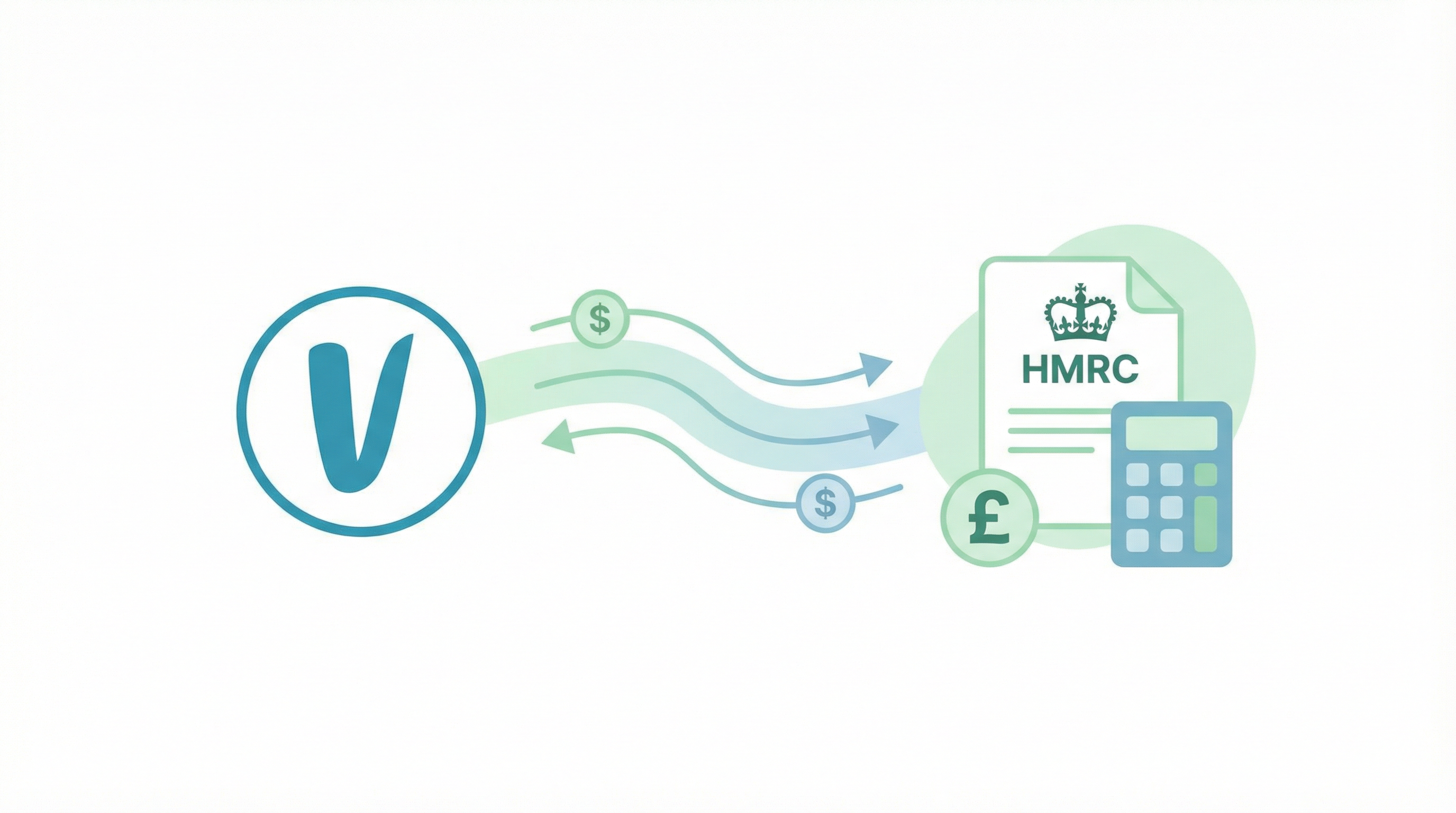Not Declaring Vinted Income? Understanding the UK Tax Consequences
Legal Notice: Vinta.app is independent and not affiliated with Vinted; Vinted has not reviewed or approved this content; this material is for information only and does not constitute legal, tax, or accounting advice.

Not Declaring Vinted Income? Understanding the UK Tax Consequences
Selling on Vinted can be a fantastic way to make some extra money or even build a thriving online business. However, with this income comes the responsibility to declare any taxable earnings to HM Revenue & Customs (HMRC) in the UK. Failing to do so can lead to a range of unwelcome and potentially severe consequences.
This article outlines what can happen if you don't declare taxable Vinted income, aiming to inform sellers and encourage good tax practices from the start.
When Does Vinted Income Need to be Declared to HMRC?
First, it's important to remember when your Vinted activities cross into taxable territory. Generally, you need to declare income to HMRC if:
- You are 'trading' – meaning you buy items specifically to resell, sell items regularly with the intention of making a profit, or make items to sell.
- AND your gross income from these trading activities (across all platforms, not just Vinted) exceeds the £1,000 trading allowance in a tax year.
- OR, even if below £1,000 initially, your activity clearly has the characteristics of a business, and you make a taxable profit.
If you're simply decluttering your own personal unwanted items and not operating as a business, your sales are usually not subject to Income Tax. (For more details on this, please see our previous articles on when Vinted selling becomes a business and the trading allowance.)
How HMRC Identifies Undeclared Income
It's a common misconception that small-scale online selling might go unnoticed. However, HMRC has increasingly sophisticated methods for identifying undeclared income:
- Digital Platform Reporting: As of January 2024, online platforms like Vinted are required to collect and report seller data (including sales volume and value) to HMRC. This gives HMRC direct insight into seller activities.
- Advanced Data Analytics: HMRC uses powerful software called 'Connect' to cross-reference vast amounts of data from various sources (banks, other government departments, public records, online information) to spot discrepancies and potential undeclared income.
- Information from Third Parties: Banks and other financial institutions can provide information to HMRC.
- Public Domain & Tip-offs: Information available publicly online or provided by concerned individuals can also trigger enquiries.
The risk of undeclared taxable income being discovered is significant and growing.
Potential Consequences of Not Declaring Taxable Vinted Income
If HMRC finds that you have earned taxable income from Vinted (or other sources) that you haven't declared, you could face a combination of the following:
-
Interest on Unpaid Tax: HMRC will charge interest on any tax that is paid late. Interest starts accruing from the original due date of the tax until the date it is fully paid.
-
Penalties for Late Registration: If you were required to register for Self Assessment (e.g., as a self-employed Vinted trader) but failed to do so by the deadline (5th October after the end of the tax year you started trading and exceeded the threshold), you could face penalties.
-
Penalties for Late Filing of Tax Returns: If you are registered for Self Assessment but file your tax return after the deadline (usually 31st January for online returns), you will receive an initial fixed penalty, which increases significantly the longer the return remains outstanding.
-
Penalties for Late Payment of Tax: If you don't pay the tax you owe by the deadline, HMRC will charge late payment penalties. These are a percentage of the unpaid tax and increase the longer the tax is overdue.
-
Penalties for Inaccuracies or Failure to Notify: These can be some of the most substantial penalties. If your tax return is inaccurate, or if you failed to notify HMRC that you were liable to tax, penalties are calculated as a percentage of the extra tax due (Potential Lost Revenue). The level of the penalty depends on your behaviour:
- Careless Action: (e.g., you made a mistake despite trying to take reasonable care). Penalties can range from 0% to 30% of the extra tax due.
- Deliberate Action: (e.g., you knew you were under-declaring income). Penalties can range from 20% to 70%.
- Deliberate and Concealed Action: (e.g., you knowingly under-declared and took steps to hide it). Penalties can range from 30% to 100%. These penalty percentages can be reduced if you make a disclosure to HMRC, especially an "unprompted" one (telling them before they find out).
-
HMRC Enquiries and Investigations: If HMRC suspects undeclared income or significant errors, they can open an enquiry (often called a tax investigation) into your tax affairs. This can be a stressful and lengthy process, involving:
- Requests for detailed records (bank statements, sales invoices, purchase receipts, etc.).
- Meetings or interviews with HMRC inspectors.
- Scrutiny of your financial history, potentially going back several years (up to 4 years for innocent errors, 6 for carelessness, and up to 20 years for deliberate behaviour or failure to notify).
The Most Serious Cases: Deliberate Tax Evasion
In cases of deliberate tax evasion or fraud, the consequences escalate significantly. Penalties can be higher (potentially up to 200% of the tax due in certain offshore cases, though typically up to 100% for UK income non-compliance). In the most serious instances, HMRC has the power to pursue criminal prosecution, which could lead to a criminal record, unlimited fines, or even imprisonment. However, criminal investigations are usually reserved for the most egregious cases of deliberate fraud.
What if You've Made a Mistake or Haven't Declared Income?
If you realise you've made an error on a past tax return, or haven't declared income that you should have, it is always better to voluntarily disclose this to HMRC as soon as possible.
- Voluntary Disclosure: Telling HMRC about an issue before they start an enquiry (an "unprompted disclosure") generally results in lower penalties than if they discover the issue themselves (a "prompted disclosure").
- How to Disclose: You can contact HMRC directly or use their online disclosure services (like the Digital Disclosure Service). It's often advisable to seek professional advice from an accountant or tax advisor to help you through this process, especially if the situation is complex or involves multiple years.
The Importance of Getting it Right from the Start
The best way to avoid these serious consequences is to:
- Understand when your Vinted selling becomes a taxable trading activity.
- Keep accurate and organised records of all your sales and expenses.
- Register for Self Assessment with HMRC by the deadline if required.
- File your tax returns accurately and on time.
- Pay any tax due by the deadline.
How Vinta.app Can Help You Stay Compliant
While Vinta.app doesn't file your taxes for you, it plays a crucial role in helping you meet your obligations by ensuring one of the core components of your tax return – your Vinted sales income – is accurately recorded:
- Accurate Income Records: Vinta.app provides a clear, reliable, and easily accessible record of all your Vinted sales income. This is the foundation for correctly declaring your income to HMRC.
- Reduces Risk of Under-Declaration: With automated tracking of your Vinted sales, the risk of accidentally omitting or understating this income on your tax return is significantly reduced.
- Supports Good Record-Keeping Habits: Using Vinta.app for your Vinted sales fosters good financial organisation, making it easier to manage your tax affairs overall.
Conclusion: Honesty and Proactivity are Your Best Defence
Failing to declare taxable income from your Vinted sales can lead to a cascade of unwelcome financial penalties and significant stress. With HMRC's increasing ability to access data from online platforms, the likelihood of undeclared income being discovered is higher than ever.
The best approach is always honesty and proactivity. Understand your tax responsibilities, keep meticulous records, and if you realise you've made a mistake, address it with HMRC voluntarily.
Disclaimer: This article provides general information about UK tax consequences and should not be considered legal or professional tax advice. Tax laws are complex and subject to change, and individual circumstances vary. If you are concerned about undeclared income or your tax obligations, you should seek advice from a qualified accountant, tax advisor, or contact HMRC directly.
Start with accurate tracking of your Vinted sales income. Vinta.app can help.
➡️ Sign up for Vinta.app today to keep your Vinted sales organised!
Tags

George Jefferson
Vinted Pro Seller and founder of Vinta.app, sharing expert insights on professional Vinted selling, tax compliance, and scaling your online business.


